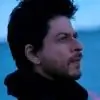Karan Johar Interview NEW
ON THE RECORD
Karan Johar, Filmmaker'I make films for Indians living anywhere... It's just that my sensibilities match those of NRIs'
Posted online: Monday, July 23, 2007 at 0000 hrs
Director, producer, TV host and, above all, an accomplished storyteller. All at the age of 35. Karan Johar is at the forefront of the new generation of filmmakers that has transformed the face of Bollywood cinema in the past decade after the low of the 80s, which Johar calls the 'worst phase of Indian cinema'. In an interview with The Indian Express Editor-in-Chief Shekhar Gupta on NDTV 24x7's Walk The Talk, Johar talks about the 'K' business, the love and flak he gets for making his brand of happy movies, why he is inseparable from SRK, and explains how being a director feels like playing God
Hello, I'm Shekhar Gupta and my guest this week is the maker of many stars and a star in his own right, Karan Johar. Welcome to Walk The Talk, Karan.
Thank you for having me here. I was going to say very nice to have you. I'm so used to saying that.
• Are you acting or is that a genuine slip?
I'm so used to interviewing people that it feels strange to be interviewed.
• That's why I'm asking: Are you making it up? Or was that a genuine slip?
It was a genuine slip. I'm not such a good actor.
• That's a good beginning.
Hopefully we'll make it more interesting.
• We worked on it. We are creating an inspiring setting for you, the Mumbai skyline.
It's fabulous.
• A little bit of a diet Manhattan, like one of your movies.
Actually I have shot in Manhattan but never in Mumbai, strangely.
• So we can have Shah Rukh Khan or somebody singing a happy song or a sad song here depending on...
Yes, maybe. But I think very soon this will not be as empty as it is today. This is the big sea link that is going to be infested with cars. I think in another year.
• And then Karan Johar will be here?
Then I'll be here, with Shah Rukh with his arms wide open.
• A happy movie?
Hopefully. I like to make happy movies.
• You've sometimes been charged with that, for being too joyful, happy, fantastic, unreal.
They call it mush, they call it bubblegum. I've been called various things. I've been called, you know, he just makes family films. As if that's a bad thing. There's been lot of criticism hurled at me. But I have been branded because I have made four films.
• Joint family films also. There's a big group photo at the end of it.
Well, in the last one, I tried to break the whole family institution. It was my take on marriage and infidelity.
• Quite successfully.
Yes, it had an extreme reaction. There were people who hated it, and people who loved it, and people who felt uncomfortable watching it. But I felt it was a story I had to tell. So I was very happy to tell it in my way. But yes, I have been associated with one kind of film because all the films have started with the letter K, they have four words in it, they have Shah Rukh Khan in it. And invariably they have most often been shot out of the country. So they say Karan Johar makes NRI films. But I always say there is a heart and soul that I contribute to my cinema. I wish people would look at that rather than just the branding.
• But I believe besides the commercial angle, there is always a convenience angle to NRI films because you've got everybody in one hotel for a fixed number of dates.
There is that too. You know, you go for a three-month-long outdoor and it's really a great shoot. And you shoot together. No one has anything else to do. So they land up shooting for you. So there is also a convenience issue.
• But how did this fascination come to be? The letter K we'll talk about later. But now, let's talk of the NRI setting. Did you figure out that there was going to be this big NRI market?
Not at all. I never planned it. It just so happens that my sensibilities match the sensibilities of the viewing audience there. I never planned even when I wrote my first film Kuch Kuch Hota Hai. It just so happened that it found a huge audience outside of the country. And thereon, every time I made a film, it was basically me. It seemed to have matched the sensibility of an NRI audience. I make films for Indians. They could be living anywhere. They could be living here, they could be living in Bihar.
• But there is an NRI market now, and very lucrative.
Yes, and it's very strong. More than an NRI market, there is an emerging non-Asian market. There are Germans, there is a French audience, there's a Polish audience. There is an audience in Korea and Japan that are watching our films and contributing tremendously to the economy of our cinema. And they're actually loving the soul and the content of (Indian) cinema, which makes me very proud.
• Also because of the music?
They love the music, they love the visuals.
• And there's always a happy ending. Almost always.
Foreigners like that.
• But in the last one, there wasn't one happy ending, there were two happy endings. Or three or two-and-a-half?
There were lots of happy endings. It had irony attached to the last one. I remember watching Kabhi Khushi Kabhi Gham at Cannes with French, Italians, Germans. And they didn't know. They don't have a concept of interval. So when the film stopped and the lights came on, they all walked out. They thought that was the end of the film. "How Dark!" they said. "We didn't think Bollywood was so dark." I said: "The film's not over yet."
We have very in-your-face emotions. We tug at your heart strings. Not like their subtle cinema. That's what I think attracts them. They feel almost therapeutic after they watch our films.
• We talked about music. I think one big contributor has been this new bhangra beat. You always have one of those like Shah Rukh Khan in your movies.
Indian music is doing very well globally. It has this huge impact everywhere. I know so many people who don't understand the language but they like the beat, the thump of our music
And I always have these item numbers. I love larger than life cinema, larger than life visuals, larger than life music. I like energetic music. I always tell music composers who I work with: Don't compose a song that will grow on me slowly. I want that instant appeal.
• You're 24 now, are you?
No, I'm 35. There's lots of Loreal in my hair because as I said, I'm worth it.
• So what are you going to graduate to now?
I'm writing a film that requires me to research a fair deal. I can't say it's a political film or a social film. It's really a love story, but it's definitely got a very strong underlying message. I'm writing it with a girl called Shivani Bhatija, who also wrote Kabhi Alvida with me and has also written Fanaa. I'm going to start next year.
• Are you going to do a number five in the K series?
Well, K is something I'm going to live with.
• Aapka nam bhi toh K se hai?
I was actually Rahul for the first six days of my life. My mother woke up one morning and said, "I don't like the name Rahul, I want to change my son's name to Karan."
• But you don't want a country of one crore all carrying K initials?
No no. I'm not saying K is great for everyone. But it works for me. A punditji said something that stayed in my head. After that I met Suneeta Menon, who's a very dear friend of mine. She's my advisor and guide and philosopher. And she told me: "Stick to K and it's always going to bring you lots of luck."
• So what else is buzzing your head right now? We know your 35-year-old wise head buzzes all the time, creatively.
Well, I'm actually in the midst of producing few films, which I've never done before. I've earlier just directed my own. And now I'm trying to brand my production house — Dharma Productions. I'm in the midst of producing a few films with younger filmmakers who I'm launching now.
• I like the way you say younger. Some Indian cricketers are older than you and they won't give place to younger players.
But I feel I'm very old. Anyway, I know nothing about cricket. And I'm not proud of this fact at all. I try very hard to fake this patriotic spirit every time India's playing and I pretend to care.
• You're also working on an animation film?
I'm working on an animation film which is an animated version of Kuch Kuch Hota Hai. It's called Kuchi Kuchi Hota Hai.
• Who is who in this movie?
Well, I'll hopefully have the voices of the original film. Shah Rukh, Kajol and Rani.
• The fascinating thing about you is that after all the movies, you are still only 35. You started very young. How quickly did you make the transition from studying French to being a designer to being a director to being a producer?
As a child I had a few dreams. I thought I'd be a journalist or a fashion designer. Then I thought maybe I'd be a writer. Then I said, should I make movies at all? It's almost scary on some level that most of your little dreams come true very soon. I enjoy it.
• So what's the next transition?
Well, I don't know. I'm hoping to have a better dream now.
• Filmmakers are gods who can create gods, in terms of stars.
That's the way you feel. Because you create a world. It thunders when it has to, rains when it has to, people live when you want them to, they die when you want them to. And you just feel you have the power in your hands, which is called cinema and very few people have that power.
• You've seen the world of cinema change in your times. Has that made life easier for people like you?
Back in 1996-97 when I was working, there was this whole transition that happened between generations. Suddenly, there was this influx of younger filmmakers.
• But there was a period before that of almost two decades when very little happened.
The 80s were the worst phase of Indian cinema. I don't know what happened. We were in a brilliant period in the 40s and 50s. In the 60s we all ran to the hill station as you know. The whole hill station phase, the whole Shammi Kapoor phase. We all screamed yahoo! from Kashmir, which was great. It was called the picnic film. In the 70s, the economic situation of the country lent itself to the angst of the common man. And the big man representing the angst of the common man was Amitabh Bachchan created by Javed and Salim as this angry young man. The Bachchan phase went into the 80s. But high dependence on him led to inferior quality because everyone wanted him. Cinema suffered. In terms of everything — content, quality. People just got lazy because he was doing it all on his own. And then suddenly there were also the remakes of south Indian films.
• Amitabh Bachchan told us a great story of Amar Akbar Anthony. He said there was a scene in which three bad guys attacked him and he was to thrash them all maybe in one blow. And Manmohan Desai said "Nahi, teen ko isne pichli film mein mara tha. Abhi dus ko lao." And Amitabh said, "If this goes on, one day I'll have to kill a whole army in one blow."
Which he did I'm sure in films ahead. Because what happened in the 80s, we also started remaking south Indian films.
• But the south also brought in so much creativity. Mani Ratnam came in and then there was A R Rahman.
That was early 90s. All that slowly started coming. There was Roja initially. And then, the big boom happened in 1994 with Hum Aapke Hain Kaun. Families had stopped coming. Today, we call it a family culture, going to the cinema halls. Families had stopped coming till 1994, till Hum Aapke Hain Kaun hit the cinema halls.
• Tell me how TV happened? I mean Koffee with Karan.
You know I like to talk a lot. And I thought why not get paid for it?
• Will you keep on doing it?
I love doing it. It's my hobby. Like people listen to music, I host a show.
• Which ones have been the most fun?
This season I've enjoyed chatting with Rakhi Sawant. She's sensational, she's controversial, and yet she's soulful, which is a really strange blend. And it's a mix you don't really find.
• But she also prepares for these shows. Because she knows these are value for her.
Of course they do. But I still feel beneath all the sensationalism, there's a heart somewhere there, there's some kind of vulnerability, which I find very endearing. I liked her, I really liked her.
I felt challenged when I interviewed Richard Gere because normally these are people from the industry, who I know very well.
• Anybody would feel challenged. He is so serious these days, so sanctimonious.
He has an agenda, definitely. He wants to talk about various things, but he's a lot of fun. He's casual and you did see how he made Shilpa stretch the way she did.
• Tell us about your group. The Cold War has ended all over the world, but there are blocs in Bollywood, right?
They're not groups, the word is "camp".
• Ok, Camp. Tell us about your camp.
I don't have one, but I'd love to apply and send in any admission fee required. I'd like to send it to whichever camp that would like to have me. You know I find it very amusing, these camps. We called them friends in our world. The media calls them camps. And now they say there's a Shahrukh Khan camp...
• So it's not like what George Bush said — You are either with us or against us.
These things have never happened with me. I've had relationships, I've had equations, I've had friendships. And I've had a great time being in those and I've never felt like I've been torn ever.
• In this camp business, if you name your three favourite people in your world of cinema.
I'll tell you. Besides my parents, there are two people who are responsible really for me being where I'm today-Shah Rukh and Aditya Chopra. Adi was the first person who told me "you should direct films". And I said "movies are not for me at all".
• Tell us your favourite Shah Rukh story.
Once I remember we were sitting in Switzerland. I was sitting with him really missing home. I had been a spoilt child, the only child. I had never been away for a long stretch. I was missing my parents. I was 25 and I should not have been feeling those emotions at that point in time. He came to me and said, "What happened. Why are you feeling so low?" I said I don't know whether this is all working for me. I don't know where I"m in my life. He said, "You'll be a filmmaker. I can tell that and I will do your first film."
And as he said this, Kajol walked in. She said, "What are you talking about?" He said, "I just told Karan, when he makes his first film, I'll act in it." She said, "Great, so will I."
And when Shah Rukh actually reached Bombay, he called my father and said, "I'm doing your son's first film. And I'm giving you dates. It's October '97, so book them now. And whatever he does, I will do."
• So forget camps. Talk about your friends. Your favourite people in your business. Kajol has been somekind of a lucky mascot for you?
Always. She was in my first two directed films. And when I did Kal Ho Na Ho and Kabhi Alvida, she couldn't be in those projects for various reasons. I called her and said, "Look, I can't make a film that doesn't have your presence in it." So she's done little little parts of song sequences in both the films.
• All these pals. Tell me about a couple more. Rani, Preity?
I'm a friendly person, Shekhar. I like people. I'm the only child and the only child is, like they say, the lonely child. So there's high dependence on friends.
• Tell us your favourite Bachchan story.
I fainted on the first day I had to work with him. I looked up to him — pun intended there — as a child. He's this aura, this mystique. He's been a family friend. In fact, he and my mother went to college together. So the relationship goes back to then.
So I had built myself up like - "Oh my god I'm going to be directing Amitabh Bachchan". And on the very first day, on the sets of Kabhi Khushi Kabhi Gham, I fainted on poor Farah Khan. She was the choreographer of the song that day. And I was so nervous that I had flu and viral and was weak and I fainted only because I was stressed working with him. And I remember he came into my room and said, "I promise, I'll dance well. So, don't worry about that." And after that, I have had an easy equation with him Also because I'm friends with Abhishek.
And I bet when you're with him, you do most of the talking as always.
No actually. He's an amazing conversationalist. He just has to be comfortable with you. If he's comfortable with you, he really speaks a hell of a lot and he's very entertaining.
• Director-producer, TV anchor, actor. But more than anything else, a master storyteller at 35. Karan Johar the veteran. Thank you for being with us.
Thank you, Shekhar.
Source:indianexpress




























